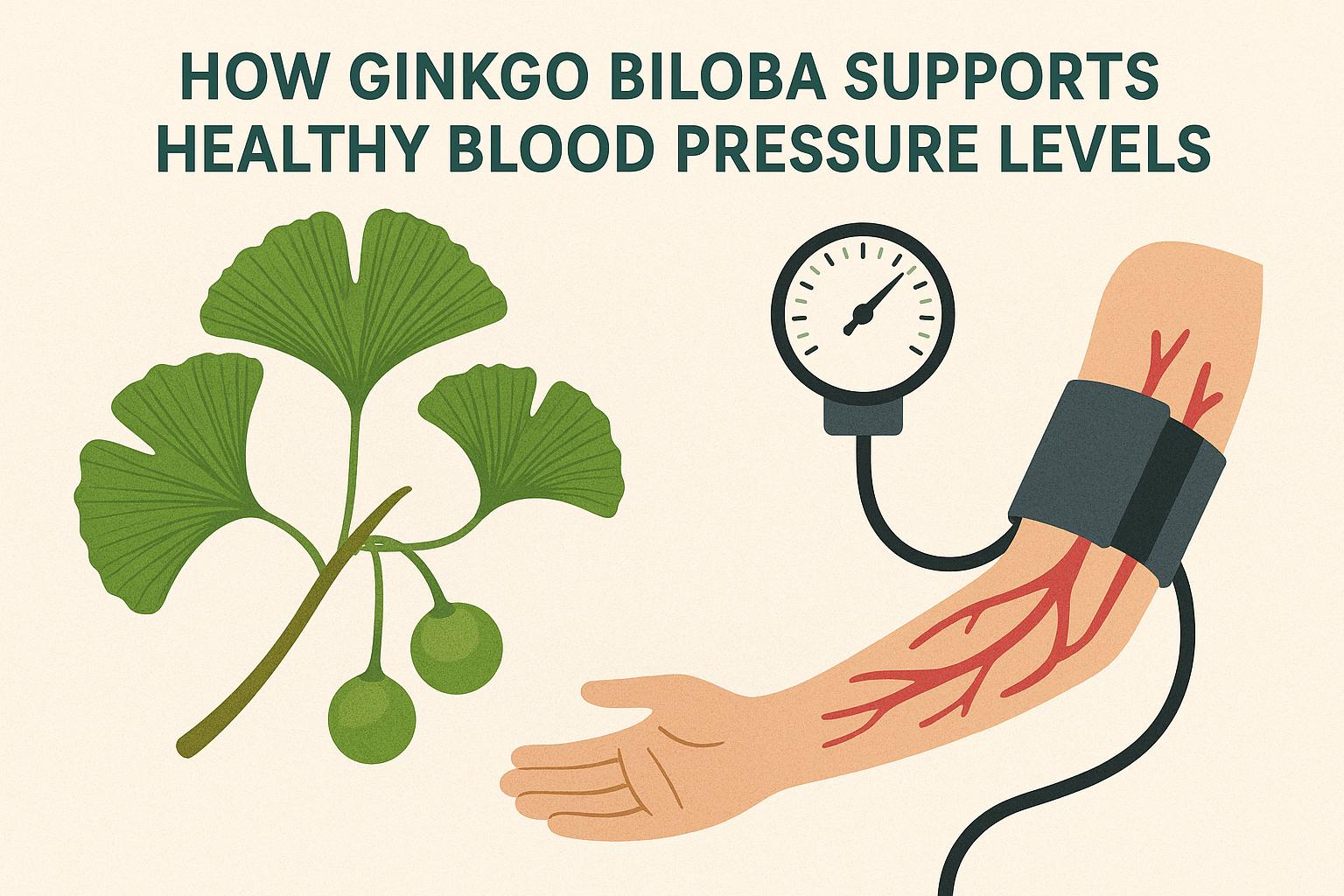Introduction to Ginkgo biloba
Ginkgo biloba, a unique and ancient tree species found in China, has long been revered for its potential health benefits. With a distinctive presence and fan-shaped leaves, it stands as a living fossil, surviving for millions of years with little change. These leaves, when processed, are commonly utilized in dietary supplements marketed toward improving a variety of health conditions, including the crucial aspect of blood pressure regulation. This article delves into the ways Ginkgo biloba may contribute to maintaining healthy blood pressure levels, exploring its chemical composition, mechanisms of action, and considerations for its use.
The Chemistry Behind Ginkgo biloba
The leaves of Ginkgo biloba are rich in a myriad of bioactive compounds that contribute to its therapeutic potential. Among these, flavonoids and terpenoids are the most significant. Flavonoids are well-regarded for their antioxidant properties. They can thwart oxidative stress by neutralizing free radicals, thereby potentially offering protection to blood vessel walls from damage. This protective action can maintain vessel integrity and function, a critical aspect in preventing the elevation of blood pressure.
On the other hand, terpenoids are another essential class of compounds found in Ginkgo biloba. These compounds are known to improve blood flow by causing vasodilation, which is the widening of blood vessels. Such an action effectively reduces vascular resistance, allowing blood to flow more freely and reducing the workload on the heart. This vasodilatory effect contributes to the maintenance of normal blood pressure levels.
Ginkgo biloba and Blood Pressure
Scientific studies have provided evidence suggesting that Ginkgo biloba may play a supportive role in maintaining normal blood pressure levels. Its primary function appears to be the enhancement of circulation through the increased availability of nitric oxide in the bloodstream. Nitric oxide is a molecule that has a significant vasodilatory effect, promoting the relaxation of blood vessel walls and thereby facilitating improved blood flow. By lowering vascular resistance, pressure on the heart decreases, which can positively impact blood pressure levels.
Research Findings: There are studies indicating that regular ingestion of Ginkgo biloba supplements may lead to modest reductions in blood pressure among individuals with hypertension. Despite these promising findings, the research landscape remains somewhat inconsistent, with various studies presenting mixed results. This indicates a need for further comprehensive investigations to establish a clearer understanding and robust evidence regarding Ginkgo biloba’s efficacy in managing blood pressure.
Mechanism of Action
Understanding the mechanism of action behind Ginkgo biloba’s effects on blood pressure involves a look at its impact on endothelial function. The endothelium is the innermost lining of blood vessels and plays a crucial role in vascular health. Active constituents within Ginkgo biloba, such as flavonoids and terpenoids, enhance endothelial function by boosting the levels of nitric oxide. This, in turn, facilitates the relaxation and dilation of blood vessels, which can potentially lower blood pressure.
The increased production of nitric oxide helps in decreasing the stiffness of vessels, ensuring that blood circulates efficiently throughout the body. This effect not only aids in sustaining normal blood pressure but also contributes to overall cardiovascular health by improving oxygen and nutrient delivery to various tissues.
Considerations and Side Effects
Despite the potential health benefits associated with Ginkgo biloba, it is essential to consider the possibility of side effects. Some people may encounter gastrointestinal disturbances, which can range from mild stomach upset to more pronounced issues. Headaches are another reported side effect, as well as allergic skin reactions in sensitive individuals.
Furthermore, Ginkgo biloba possesses blood-thinning properties. This characteristic necessitates caution, particularly for individuals already on anticoagulant or antiplatelet medications, given the risk of increased bleeding. For this reason, it is advisable to consult a healthcare provider before incorporating Ginkgo biloba into one’s supplement regimen, especially for individuals with existing health conditions or those currently taking other forms of medication.
Conclusion
In summary, Ginkgo biloba presents itself as a promising natural supplement for supporting healthy blood pressure levels, primarily through its effects on circulation and blood vessel health. While the initial research provides a foundation of encouragement, it is important to acknowledge the necessity for more extensive studies to definitively determine its efficacy and safety profile.
As with any supplement, individual responses can vary, and it is crucial to approach its use with caution and seek guidance from healthcare professionals. For those interested in further exploring the health implications of Ginkgo biloba, reputable health websites such as Healthline or WebMD offer a wealth of ongoing research and insights into its potential benefits and applications.

